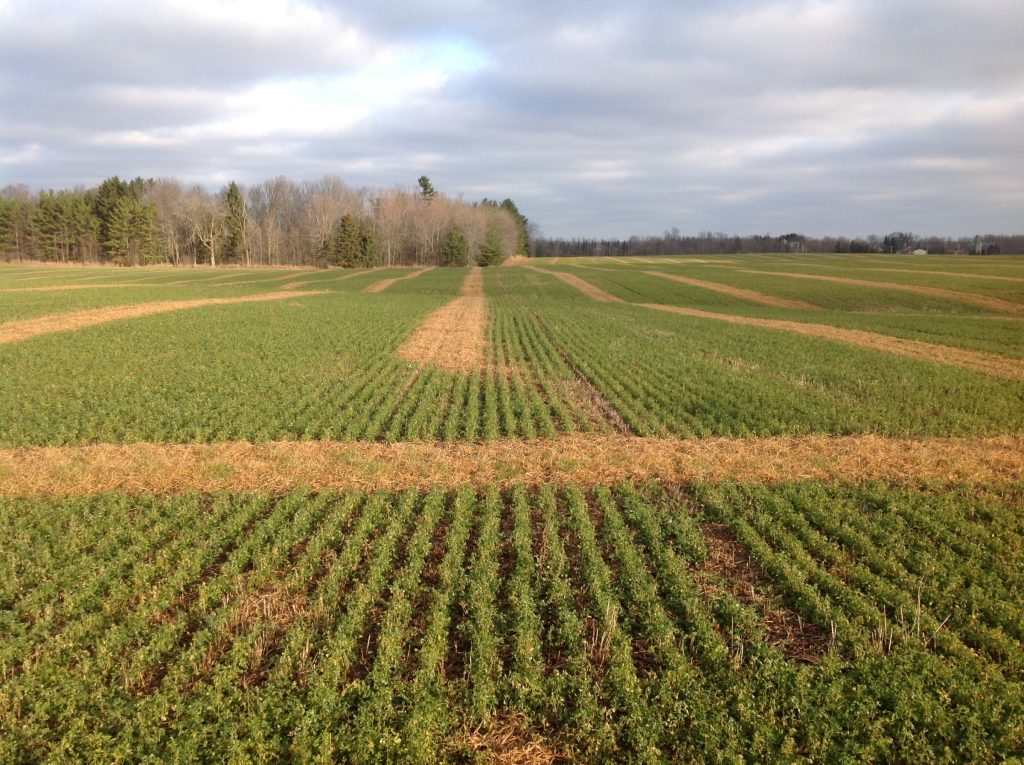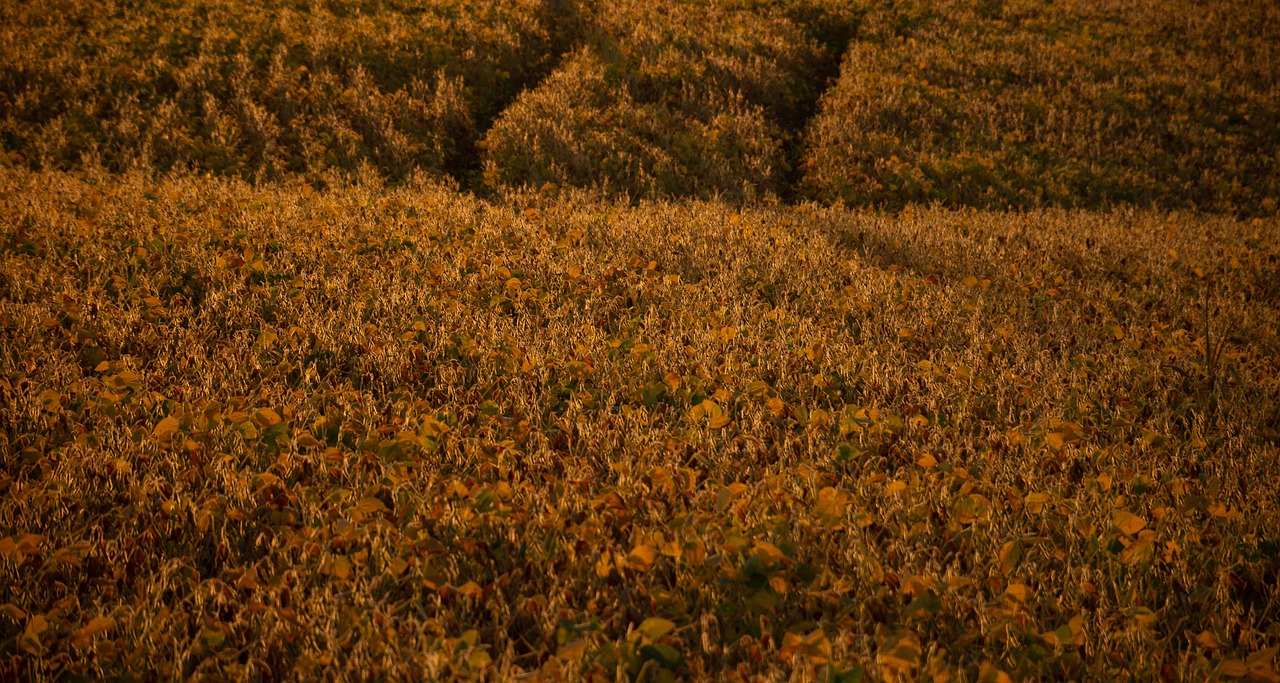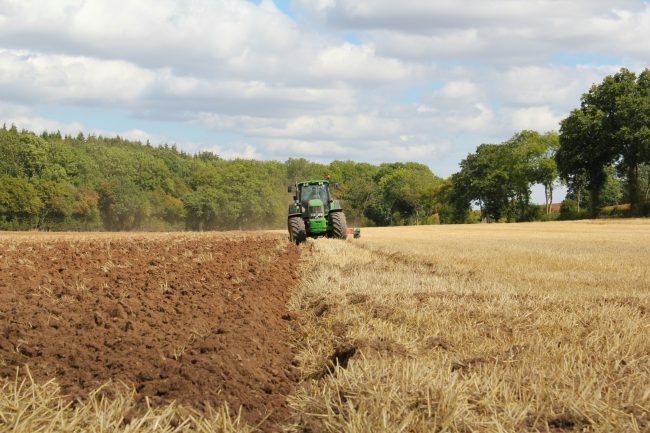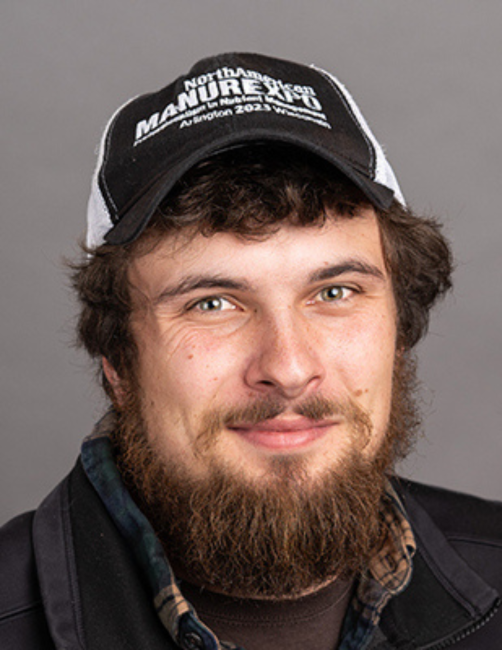Crops and Soils
Crops and Soils
The Extension Crops and Soils Program provides timely resources and information to help Wisconsin crop producers and their agricultural consultants manage crops efficiently and profitably.
You can find information on:
- Crop Production and cropping systems for corn, soybeans, forages, nutrient management, soil science, commercial vegetable, and cover crops.
- Pest Management: Information on the management of weeds, insects, and disease in Wisconsin cropping systems.
- Ask Extension: Your opportunity to talk directly with Extension specialists and staff.
Articles of Interest
Establishing alfalfa following wheat

Look out for herbicide carryover, volunteers in late summer seeding of alfalfa after wheat.
As we head toward the end of summer, it is closing in on time for a late summer establishment of alfalfa. Commonly in Wisconsin, this is done following a wheat crop in the spring. This can lead to a few challenges to consider: residual herbicide carryover and the effects of volunteer wheat on successful establishment.
Giant Ragweed Control- Research Summary

This publication–which was the result of six years (2018-2023) of giant ragweed driven research projects–was conducted by the WiscWeeds team at the Rock County Farm (Janesville, WI) and sponsored by commodity groups and crop protection industry. It will benefit those battling giant ragweed:
Waterhemp control in XTendFlex soybean without dicamba

The Wisconsin Cropping Systems Weed Science program has conducted several research trials investigating postemergence (POST) weed control in XtendFlex soybean systems (dicamba-, glufosinate-, and glyphosate-resistant soybean) without OTT applications of dicamba. Follow link for the full article:
2023 Wisconsin Weed Science Research Report
The purpose of this report is to share the results of corn, soybean, and spring wheat herbicide evaluation research trials conducted by the Wisconsin Cropping Systems Weed Science (WiscWeeds) Program during the 2023 growing season.
2024 Cereal Rye Cover Crop Research Report
“The adoption of cereal rye (Secale cereale) cover crop has triggered the interest of farmers as an additional tool for pigweed
(waterhemp [Amaranthus tuberculatus] and Palmer amaranth [A. palmeri]) management in soybean production systems. Along
with interest in this practice, there have been many questions about how cereal rye can impact other weed management
practices, such as the fate of PRE-emergence (PRE) herbicides in the soil when applied over high cereal rye biomass.” Follow link below to view this multi-state field study.
Plant Pathology
Damon Smith, Professor and Extension Specialist, UW-Madison, Plant Pathology, and Brian Mueller, Researcher II, UW-Madison, Plant Pathology, published a summary of pesticide related research trials in 2023 under the direction of the Wisconsin Field Crops Pathology program. This report is useful to those who use pesticides. Some of the products mentioned in the report may not have an approved Wisconsin pesticide label. Check with your local extension office or agricultural chemical supplier to guarantee the product you use has an approved label:
Annual Pest Management in Wisconsin Field Crops – A guide to managing weeds, insects, and diseases in corn, soybean, forages, and small grains:
Stay Updated on the latest by viewing the Crop Protection Network
DON Considerations for Wheat Grown for Livestock Feed
Written by our own Crops & Soils and Livestock Educators, this article is helpful to those who own livestock and wanting to understand what DON (deoxynivalenol or vomitoxin) can affect the small grains grown to feed their livestock. DON is a mycotoxin that is responsible for Fusarium Head Blight (FHB), a disease in small grains. Follow the link to read and learn more:
Upcoming Events

Thinking About Farm Succession?
You know you should make plans for the future of the farm, but maybe you’re not sure where to start. Or maybe you’ve had a few conversations with your family or farming partners, but that conversation drifts to other more pressing matters about the operation.
It is common for farmers to push farm succession planning to the back of their minds. It isn’t something that farmers do every year, so finding the time and knowing where to start can be hurdles that seem too high to cross.
In this workshop, Joy Kirkpatrick and Kelly Wilfert, both Extension Farm Management Outreach Specialists, will provide a framework to help farms to identify legal risks in farm succession and estate planning and to begin those first conversations around succession planning.
This workshop will be held on Thursday, March 6, 2025 from 6:00 – 9:00 pm at the Richland Campus, 1100 Highway 14 West, in Melvill Hall (administration building) the Pippin Room.
This workshop is free; however, space is limited, so we would appreciate registrations. We will accommodate walk-ins on the day of the workshop if possible. Please register online at Intro to Farm Succession & Estate Planning Workshop Registration.
If you prefer to register by phone or need assistance with the form, please contact the Richland County Extension Office at 608-647-6148.
For more information, contact joy.kirkpatrick@wisc.edu 608-263-3485 or kelly.wilfert@wisc.edu 608-263-5798. If you need accommodation to attend this event, please contact Joy.kirkpatrick@wisc.edu or call 608-263-3485.
Latest Updates in Crops and Soils
- The Central Wisconsin Processing Crops Meeting is an opportunity for industry professionals, farmers, and agronomists to learn about management of processing crops.
- Jerry Clark, a regional crops and soils educator with the University of Wisconsin–Madison Division of Extension, was named the 2025 Wisconsin Certified Crop Adviser (CCA) of the Year in recognition of his decades of service providing trusted, research-based agronomic guidance to Wisconsin farmers.
- In these late winter workshops hosted by UW–Madison Extension's on-farm research program, explore strategies to advance nitrogen management for improved profitability and water quality through local research results and discussions with participating farmers, agronomists, and other regional partners.
Latest News on Integrated Pest & Crop Management
- Daniel H. Smith, Outreach Program Manager, UW-Madison Division of Extension, Rodrigo Werle, Weed Scientist and Extension Specialist, UW-Madison Are you planning to spray 2,4-D for postemergence broadleaf weed control in Enlist E3 soybean? The 2,4-D …
- Natasha Paris, Daniel Smith, Rodrigo Werle, Tatiane Severo Silva and Ryan DeWerff, UW-Madison This publication provides a starting point of reference when considering using cover crops following herbicides in the cropping system. It outlines rotational …
- Damon Smith, Professor and Extension Specialist, Plant Pathology Dept; Director, Nutrient and Pest Management Program The 2024 growing season looks to be challenged by not only weather, but by prices. Producing grain in years when …
- A field study was conducted by WiscWeeds Graduate Research Assistant Guilherme Chudzik in 2022 and 2023 at the Rock County Farm, Janesville, WI, to evaluate the impact of soil management practices, soybean planting time, and …
- There are a lot of weedy soybean fields across Wisconsin this year and the dry conditions are the major culprit. A lack of precipitation reduced the effectiveness of many residual herbicides and drought-affected soybeans were …
Staff
If you have any questions regarding Crops & Soils in Vernon County, please contact:
Regional Crops & Soils Educator, Sam Bibby

Serving La Crosse, Crawford, and Vernon Counties
Contact: 608-219-2055
Email: sbibby@wisc.edu
Sam Bibby serves as Regional Crops Educator, covering La Crosse, Vernon, and Crawford counties. Sam works to address the specific needs of producers and community members related to crop production. Outreach efforts will aim to form a bridge between university lead research and on farm practices.
He attended the University of Wisconsin-Platteville where he earned his undergraduate degree in soil and crop science in 2019. He then attended North Dakota State University and earned his master’s degree in plant science. Sam’s masters research was titled “Corn-Alfalfa Intercropping with Different Row Spacings” and was focused on developing a more profitable way for producers in the Northern Great Plains to establish alfalfa. Most recently, Sam worked for the NDSU Forages and Industrial Crops Program as the Research Specialist and was responsible for designing, managing, and analyzing field trials related to forage and industrial crop production.
Sam’s primary interests lie in conservation, farm technology, intensive crop management, forages, and alternative crops. Sam hopes his background in research and day-to-day farm operations will help him deliver tangible, data driven solutions to growers.

